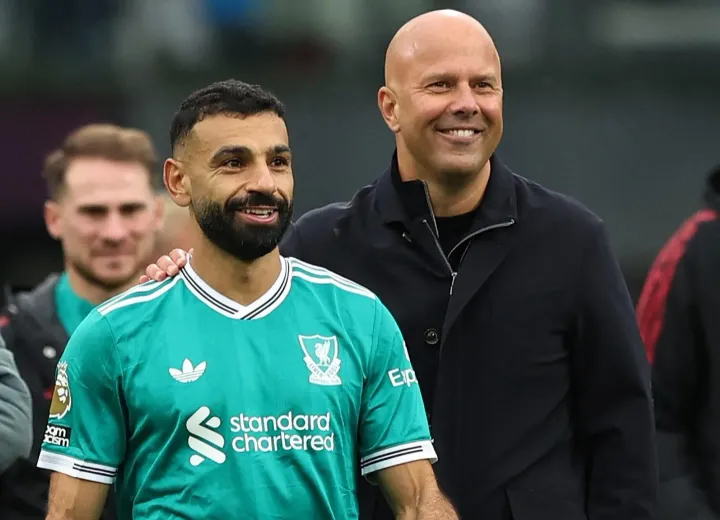It blazed a trail for a generation of gifted African footballers to shun the lucre of championships elsewhere to make their way into Türkiye and leave their stamp on the Super Lig.
Besides Musisi, Nigerians Daniel Amokachi (Bésiktas), Jay Jay Okocha and Uche Okechukwu; Egyptian Ahmed Hassan (Besiktas); Ghanaian Stephen Appiah (Fenerbahçe) and South African John Leshiba Moshoeu (Fenerbahçe) are some of the pioneers of the great African influx that continues to embellish the Super Lig.
The latest football season got around 60 African footballers playing for Turkish clubs. They come from countries spread across the continent such as Senegal, Cameroon, Nigeria, Ghana, Congo, Ivory Coast, Mali, Guinea, Angola, Algeria and Congo.
Their number increases practically every year, thanks to the vitality of the Super Lig, attractive salaries, restrictive taxation, quality of infrastructure and the fawning fandom.
Continental drift
If the passion of the football-loving public feeds the frenzy, the efficiency with which the clubs are managed keeps African talent invested in the promise of a better future on the Turkish pitch.
Most clubs are run by businessmen and enjoy more and more resources in the form of TV rights, sale of memorabilia, box-office incomes and transfers.
The consistency of this model allows Turkish clubs to offer high salaries to foreign players, explains Cameroonian defender Dany Nounkeu, who played for Karabükspor.
The fan fervour in packed stadiums is also a significant asset. Former Senegalese international Ricardo Faty knows the Turkish championship well and believes that Turkish people live and breathe football.
“Here, when people go to the stadium, they are not going to watch a show. They are part of the show!" he tells TRT Afrika.
Ricardo's brother Jacques, who played for Lazio in Rome and also spent several years in Türkiye, believes Turkish fans are invariably as much "in the game" as the team they support.
"They know that they can influence the referee, destabilise the opponent...In fact, they come to play with you," he says.
"The Süper Lig is really an interesting league. It isn't very demanding tactically, but otherwise it is a pleasant championship to watch with a lot of players coming from all very technical and athletic backgrounds.
Türkiye is a country where every household has its favourite club, and even those who do not necessarily follow football support one. It was really a pleasure to play there."
For many African players looking to break into the international club circuit, Türkiye could also be a springboard. Many hope to shine there and attract the attention of big European clubs in England, Italy, Spain or France.
Back in the last decade of the previous millennium, Musisi was among the first to make the switch, joining Bursaspor in the 1994-95 season from the French club Stade Rennais.
He left a good enough impression for other emblematic figures from Africa to settle down alongside the Turkish footballing elite.
In the 2000s, there was another wave. Galatasaray hosted the bulk of the contingent, with Didier Drogba (Ivory Coast), Rigobert Song (Cameroon), Shabani Nonda (Congo), Abdul Kader Keita (Ivory Coast) and Younès Belhanda (Morocco).
From this same generation, there was also the Togolese Emmanuel Adebayor, who played for Istanbul Basaksehir, along with Aurélien Chedjou (Cameroon).
Former FC Barcelona and Inter Milan star Samuel Eto'o, regarded as a living legend of not just Cameroon but African football as a whole, also made some remarkable appearances in the Turkish championship for Antalyaspor and Konyaspor. Asamoah Gyan, the top scorer in the history of Ghana football, played for Kayserispor.
Ease of biz
African players' continuing affinity with Turkish club football is due in no small part to the relaxation of quotas for foreign footballers, in force since 2015 (14 per club, with the possibility of 11 making it to the match sheet), and a significant increase in the worth of television rights.
The latter shot up from 362 million euros for the period 2012-2017 to 555 million euros for 2017-2022.
In the transfer market, Turkish clubs don't splurge. They adopt a measured approach to the volume of transfers, highlighting above all the remuneration paid to players.
All this is backed by an advantageous taxation system. The tax rate for footballers is much lower than in France (15% against 47%). What's more, unlike in France, it is the clubs that pay the players' taxes.
“What we earn in France in gross, here it is net. Not to mention the bonuses, which can be very interesting," says Cameroonian Dany Nounkeu.
From the security point of view as well, Türkiye has made enormous progress. It has implemented a very strict policy to combat violence in stadiums.
To achieve this, a filing system has been put in place, including electronic cards containing the personal data of supporters. "Security in and around stadiums is always high," says former Cameroonian international Aurélien Chedjou.
Senegalese surge
Moussa Sow, Demba Bâ, Papiss Cissé — the list of great Senegalese goal scorers to have plied their trade in Türkiye is a long one.
Their origins lie in 2002, when the West African country made everyone sit up and take notice during the World Cup in Japan and South Korea. The surge of Senegalese players into Türkiye hasn't stopped since.
It all started with veterans Tony Silva (Trabzonspor, 2008-2010), Diomansy Kamara (Eskişehirspor, 2011 and 2014) and Mamadou Niang (Fenerbahçe SK, 2010, 2011 and Besiktas 2013), leading to the likes of Moussa, Demba and Papiss.
The first among the latter trio joined Fenerbahçe SK in 2012. He played there until 2015, scoring 66 goals in 154 games. Transferred to Al-Ahli Club (UAE), he was later loaned to Fenerbahçe SK during the 2016-2017 season.
The Senegalese striker went on to play for Bursaspor (2018), Gazişehir Gaziantep FK (2019) and Ümraniyespor (2020-2021).
Demba arrived in Besiktas in 2014 and stayed a lone season with the Turkish club, but it was enough for him to score 27 goals in 44 games.
He signed later for Göztepe SK for one season (2018) and then for İstanbul Başakşehir in 2019, netting 26 goals in 83 games.
Papiss discovered Türkiye with Alanyaspor (2018-2020). He played 65 games and scored 42 goals. He then joined Fenerbahçe SK (2020-2021) before signing for Çaykur Rizespor during the 2021-2022 season.
Before these three top Senegalese strikers, Issiar Dia was another star who signed up for a Turkish stint. Starting his professional career in Nancy (France), he had joined Fenerbahçe SK during the 2010-2011 season and scored 17 goals in 48 games.
The cumulative success of all these players seems to have inspired scores of others from their country to pick Turkey as their favourite footballing port of call.
For the current season, there are at least 10 Senegalese players competing in the elite league. To the delight of Turkish fans, their country clearly remains the playground for Africa's best.
























